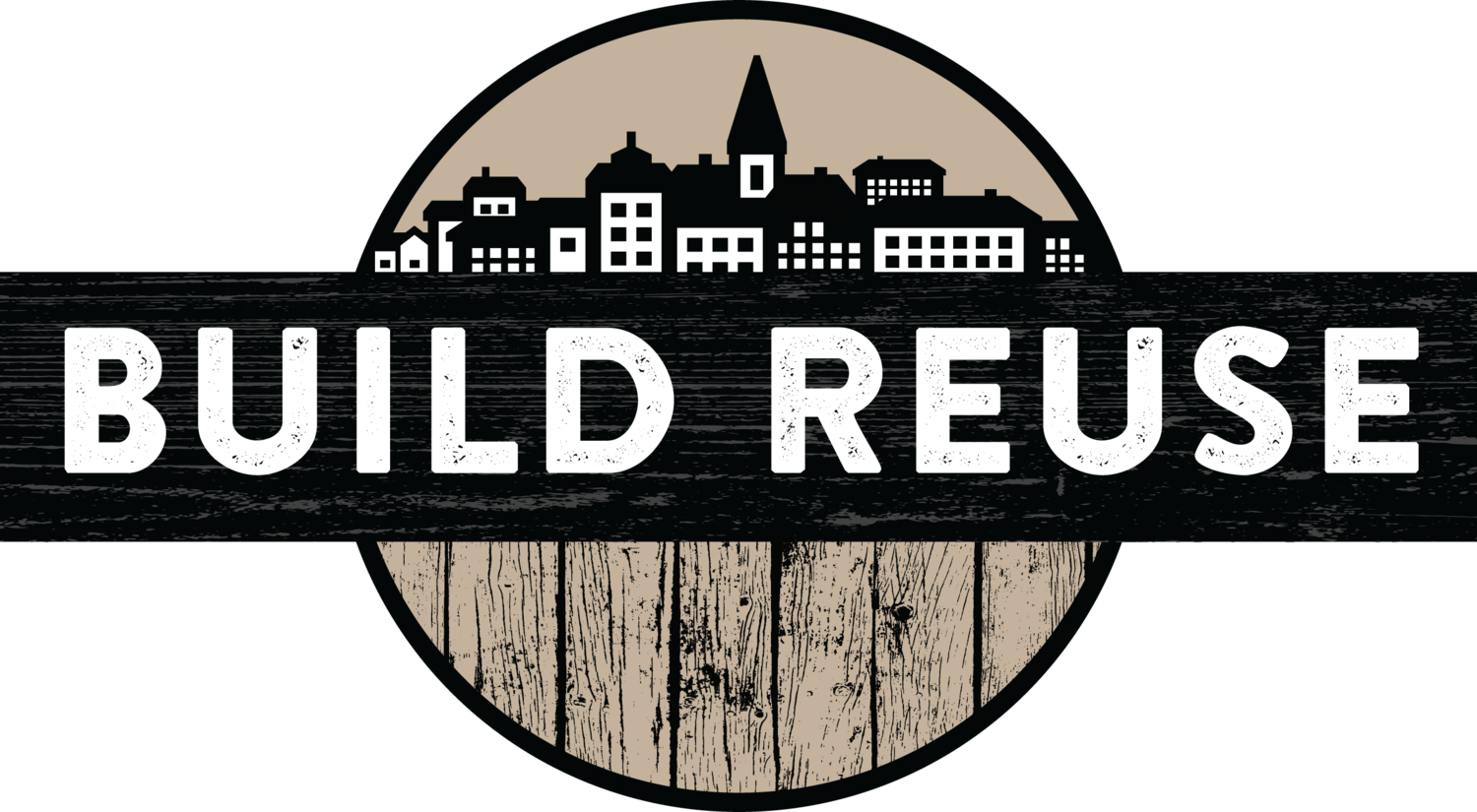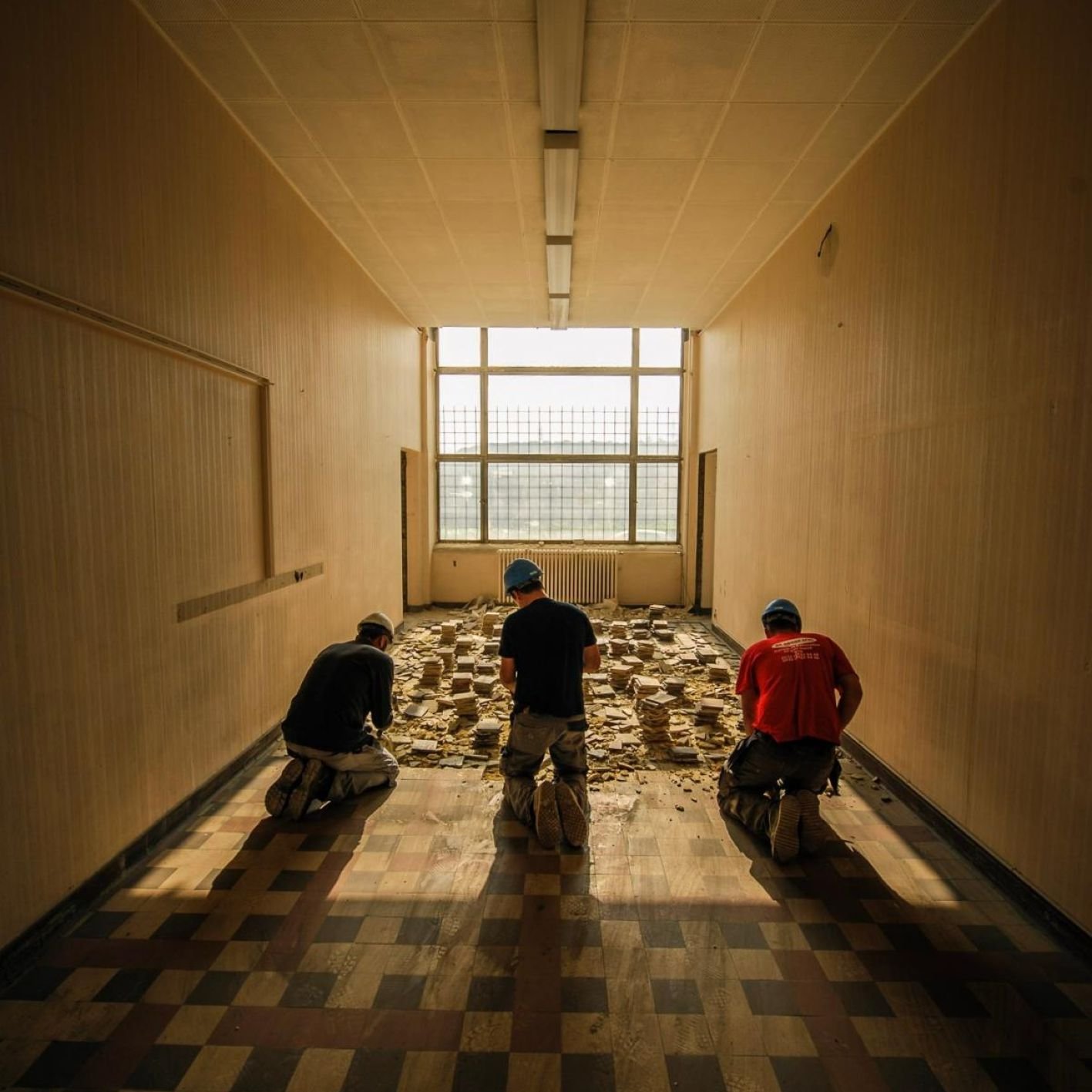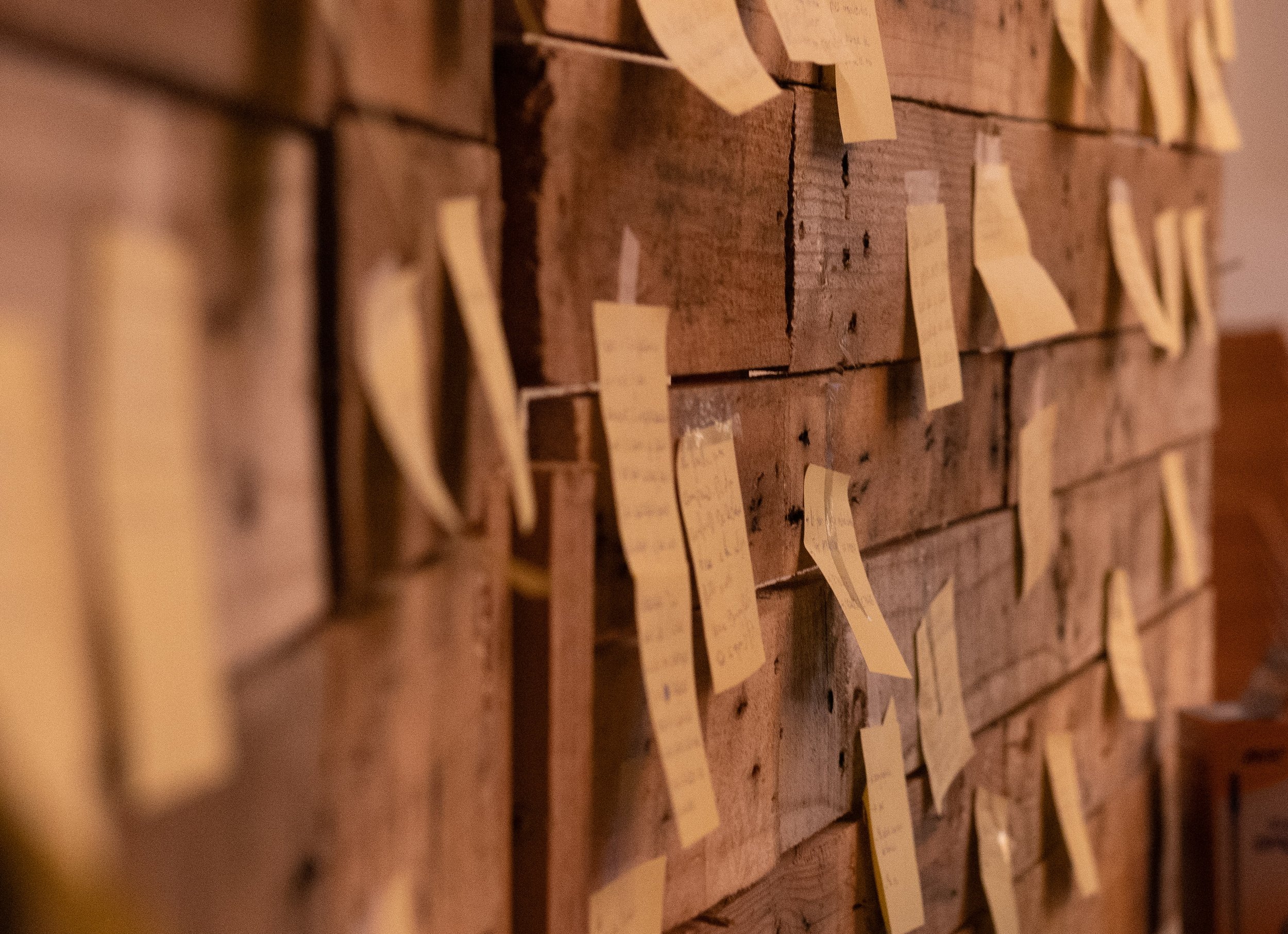
2022 Deconstruction + Reuse Conference
Schedule At-A-Glance
Are you interested in serving as a moderator for conference sessions?
Email Build Reuse to express your interest and availability.
Tuesday, October 18
11:00AM - 5:00PM ET
All times are listed in Eastern.
11:00 - 11:20 AM
Welcome Address
11:30 AM - 12:30 PM: Opening Keynote
Michaël Ghyoot
Rotor/Rotor DC
Michael Ghyoot is a Brussels-based architect at Rotor, a cooperative design practice that investigates the organisation of the material environment. Rotor’s side-project, Rotor Deconstruction Cooperative, seeks to collaborate with contractors, non-profits and other companies, and to become a central part of a regional ecosystem for large scale reuse of building materials.
12:30 - 1:15 PM: Break
1:15 - 2:00 PM: Concurrent Session Presentations
Session 1.1: The End of the Demolition Era: The Rise of Deconstruction
Maybo AuYeung (City of Palo Alto, California, USA)
In 2020, Palo Alto adopted the Deconstruction and Construction Materials Management Ordinance - the first deconstruction ordinance in the nation that targets both commercial and residential whole structure removal projects. This presentation will share the development of the ordinance, provide an update on the ordinance implementation since July 2020, show case studies of completed deconstruction projects, and discuss feasibility and plans to expand the ordinance in the future.
Session 1.2: Construction and Demolition Diversion Ordinances in Vancouver, Canada and Pitkin County, Colorado
Adriana Velasquez (Metro Vancouver - Vancouver, British Columbia, Canada), Cathy Hall (Pitkin County Solid Waste Center - Aspen, Colorado, USA)
This session will provide an overview of how the two C&D debris diversion ordinances were developed and implemented. Session highlights also will include Vancouver’s toolkit for the C&D industry, which includes evaluation methods and strategies to encourage deconstruction and reuse; and Pitkin County’s Motherlode Mercantile, a reuse retail operation on the grounds of the Solid Waste Center that sells reusable and unused building materials and more, opened in 2022.
Session 1.3: Challenges in Reuse Retail: Strategies and Trends to Change the Game
Karen L Jayne and Dustin Ingram (Stardust Building Supplies - Glendale, Arizona, USA)
Lessons learned as we traveled around the country visiting building material reuse organizations. We'll share common challenges related to operating a building material reuse organization. We'll also share lots of great tips, ideas and strategies our colleagues in the building material reuse space are implementing to improve operations, increase sales revenue and engage others in the joy of building material reuse.
Session 1.4: Salvaged Materials from Deconstruction to Store
Anne Nicklin (Rebuilding Exchange - Chicago, Illinois, USA)
This session will demonstrate the circular economy from beginning to end - highlighting the material but also labor, workforce training, and community. It will include a virtual tour that follows salvaged materials from a deconstruction site to Rebuilding Exchange, a reuse retail store.
2:00 - 2:15 PM: Break
2:15 - 3:30 PM: Concurrent Session Presentations
Session 2.1: An Architect, Policymaker, Contractor, and Reuse Retailer Walk Into A Bar…
Ted Reiff (The ReUse People - Oakland, California, USA), Eden Brukman (City of San Francisco, California, USA), Alejandra Arce Gomez (GCI General Contractors - Bay Area, California, USA), Marcus Hopper (Gensler - San Francisco, California, USA)
…and then they figured out how to repurpose it! But seriously: this session will be a real-life exploration of how to support the reuse of commercial building products at scale. Attendees will learn about our concept design for one proposed solution: a simple, adaptable, and repositionable material reuse facility prototype focused on streamlining deconstruction and redistribution through workforce development, inventory storage and management, and community services.
Session 2.2: Analysis of the Major Influential Factors on Decon in Pgh through AHP/Estimating the Material Reuse
Joshua Lee, Tannaz Bakeshloo, Zehan Zhang (Carnegie Mellon University School of Architecture, Pittsburgh, Pennsylvania, USA)
Our team created a new decision-making method to integrate the views of different stakeholders on deconstruction and extract key criteria in Pittsburgh to demonstrate the actual impact to its pilot program of deconstructing city-owned condemned properties. Since many cities throughout the U.S. have adopted deconstruction programs, we hope this decision-making method will further aid municipalities in making decisions based on consensus and strategically weighing complex data based on their own unique context.
This study compares a variety of scanning techniques combined with BIM to estimate the potential quantities of materials that could be reused, recycled, and landfilled for a condemned property in Pittsburgh, Pennsylvania. The resulting recommended process could make it much easier for deconstruction crews to estimate the material available for reuse and provide architects and contractors that wish to reuse these materials a more reliable quantity and availability of materials which we hope will lead to much less C&D waste ending up in landfills.
2:15 - 3:00 PM: Concurrent Session Presentations
Session 2.3a: Building Community Capacity in Construction and Demolition Waste
Mark Roberts (Auckland Council, Waste Planning Team - Auckland, New Zealand)
In 2022, Mark undertook a fellowship study tour of more than 30 diverse organisations in the USA and Canada who are active in deconstruction, recovering building materials, and making reusable materials more widely available, including social enterprises, businesses, and governments. This presentation will cover the key learnings and observations from the tour, including the factors that the organisations have in common that have led to their success.
Session 2.4.a: The Win-Win-Win Building Move Scenario
Ashlee Anderson (Anderson Building Movers, Paynesville, Minnesota, USA)
While nearly any building CAN be moved, we'll examine the ideal situations to create a win for the buyer, seller, mover, and environment! Participants will learn when to think of MOVING first before demolition, which is important to increase awareness of the option and to maximize the amount of materials for reuse.
3:00 - 3:30 PM: Concurrent Session Presentations
Session 2.3b: Bay Area Deconstruction Workgroup Highlights
Timonie Hood (U.S. EPA Region 9, Pacific Southwest and BADWG, Oakland, California, USA)
The Bay Area Deconstruction Workgroup (BADWG) , founded in lat 2017, brings together experts on deconstruction, building materials reuse from the public, nonprofit and private sectors. Co-led by Timonie Hood, EPA Region 9, and Nicole Tai, GreenLynx, the groups quarterly meetings feature fast-paced presentations on hot deconstuction and reuse topics including: Policies, Standards and Best Practices; Right to Repair; Hazardous Materials Management; Innovative Contracts; Job Creation/Job Training Programs; Historic Preservation; Permitting.
BADWG will share some key activities and learnings of our diverse presenters from the past year.
Session 2.4b: The Mizer’s Ruin
Jason Griffiths (Plain D*B, College of Architecture at the University of Nebraska Lincoln, USA)
In Midwestern agricultural regions, there is a certain amount of confusion over the classification of native tree species. This is especially true of the Eastern Red Cedar tree, which is often described as “invasive” despite being one of the most established native trees in the US. This session explores the impact of this confusion in terms of trees considered “desirable” for lumber production and those that are excluded. The session will then describe a case study project (The Mizers’s Ruin) that provides an alternative solution through small-scale, strategic extraction of “invasive” trees that supports a local circular economy. It provides a broader evaluation of potential new sources of sustainable materials that overcome the obstacles of biased classification and the selective preference for large-scale industrial production.
3:30 - 4:00 PM: Break
4:00 - 5:00 PM: Members Meeting
Open to all conference attendees. Build Reuse membership not required! Meeting will include a Build Reuse toolkit survey update from Brad Guy.
7:30-9:00: Decon + Reuse Movie Night - The Box Truck Film: Building a Reuseful Home
The documentary focuses on the transformation of a 17-foot moving truck into a 98-square foot tiny house and mobile reuse education center. Using almost nothing but reused, repurposed, and dumpster-dived materials, the duo’s “triumph over junk” showcases the endless benefits of the reuse lifestyle, which are implemented in very creative (and even comical) ways.
The 72-minute film will be followed by a Q&A discussion with the filmmakers, Alex Eaves and Deek Diedricksen
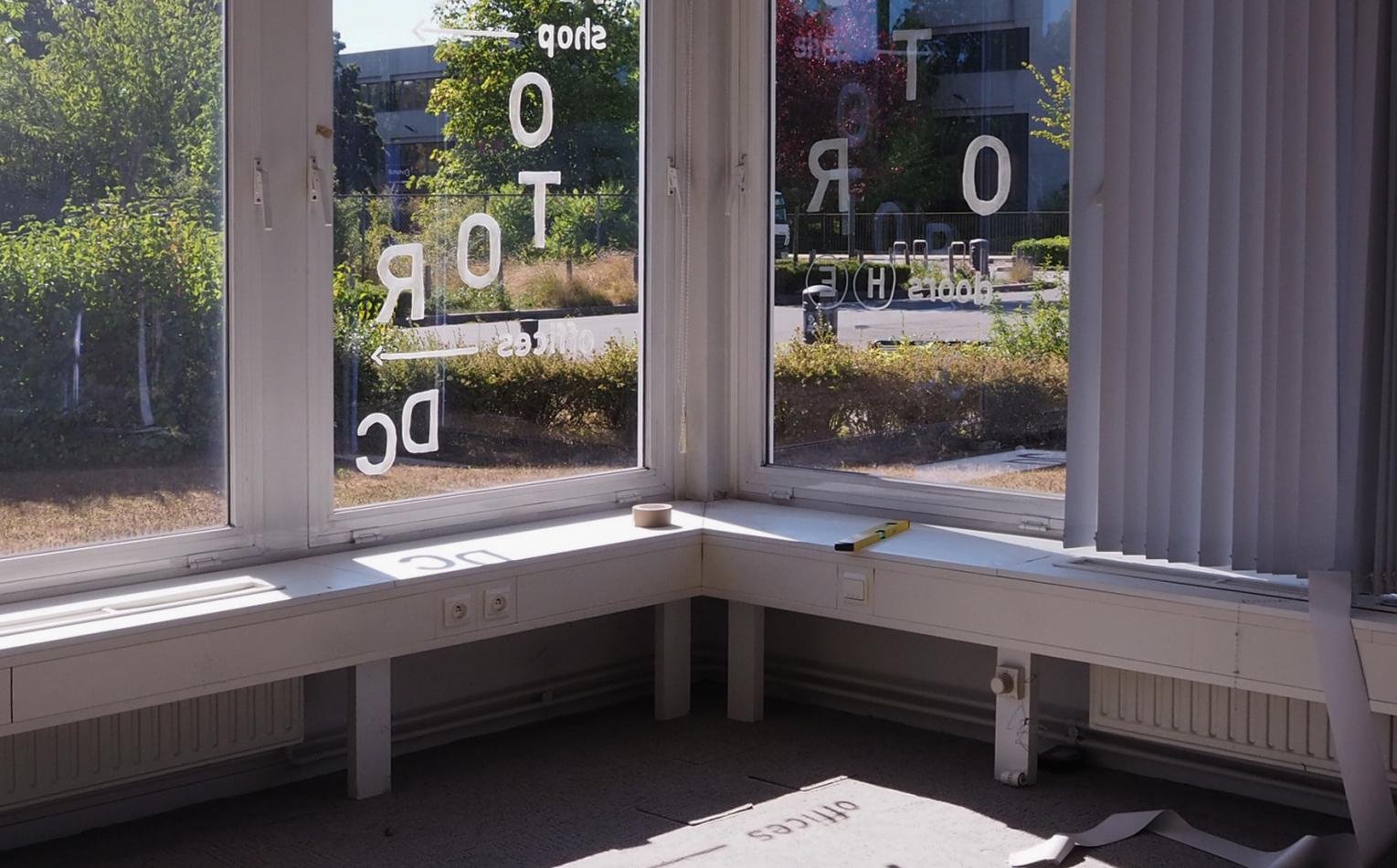
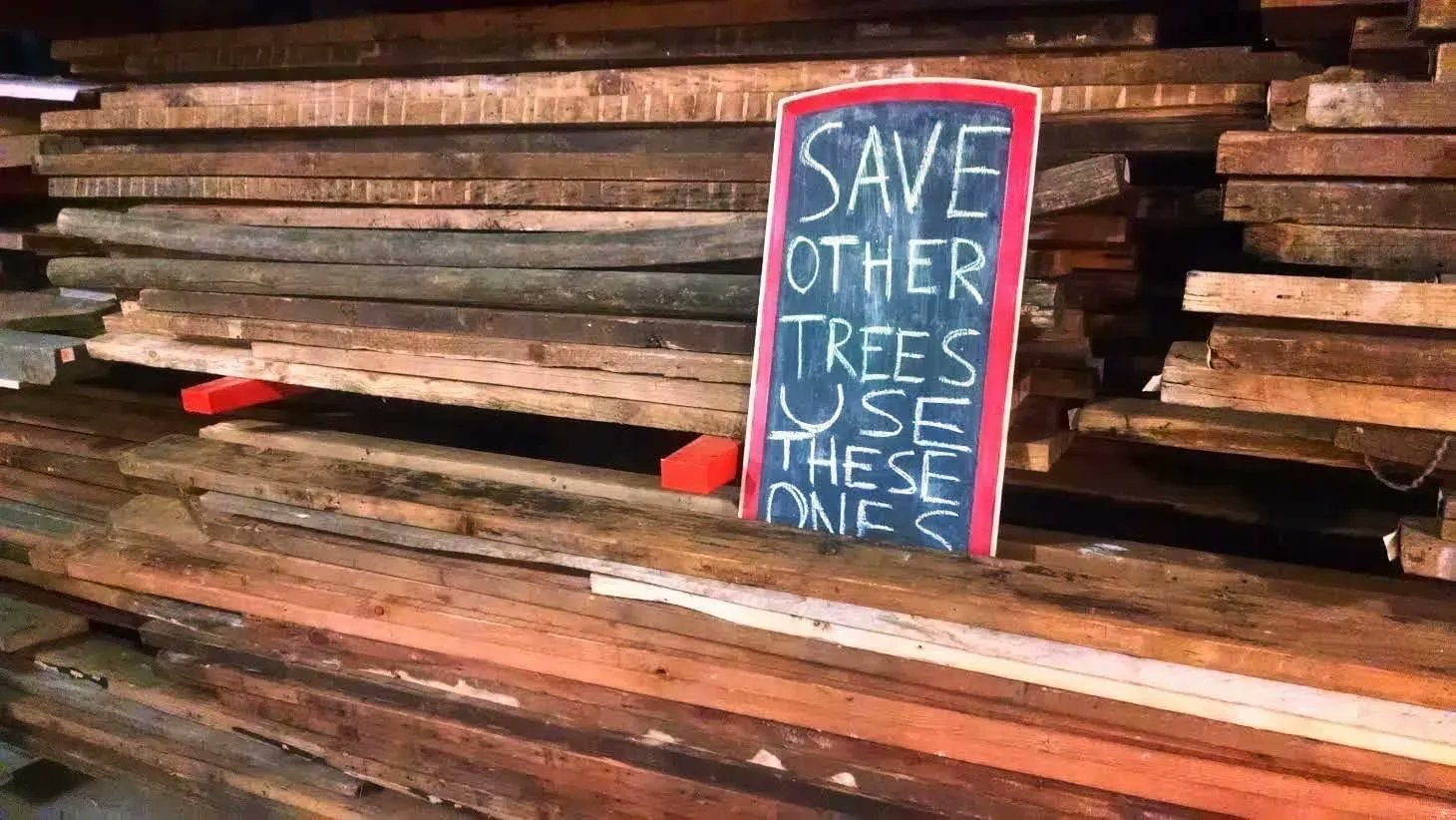
Wednesday, October 19
11:00AM - 5:00PM ET
All times are listed in Eastern.
11:00 AM - 12:00 PM: Day 2 Keynote
Building a Policy Toolkit: San Antonio’s Deconstruction Ordinance
Shanon Miller and Stephanie Phillips (City of San Antonio Office of Historic Preservation)
On September 8, 2022, San Antonio became the largest city in the US to adopt a deconstruction ordinance. Presented through the lens of the conference theme - build your reuse toolkit - this keynote will highlight how aligning stakeholders in climate action, affordable housing, historic preservation, real estate and development, innovation, workforce training, and public health can affect transformative, place-based policy change.
12:00 - 12:15 PM: Break
12:15 PM - 1:00 PM: Concurrent Session Presentations
Session 3.1: Adaptive Reuse at Google 237 Moffett Park Drive
Ali Flynn (XL Construction - Silicon Valley, California, USA), Kristin Magnuson (Stok - San Francisco, California, USA)
"The most sustainable building is the one that already exists." This session will cover the challenges and lessons learned throughout the construction process of Google 237 MPD. The building's structure was salvaged and adapted from a 1960s research and development facility for one of the world's first mainframe supercomputer firms.
Session 3.2: The New Local Materials
David Maples (RIOS - Los Angeles, California, USA)
This presentation will showcase how RIOS, a multidisciplinary design firm with offices in Los Angeles, Portland, Boulder, and Austin, has been pushing to increase building reuse ideals for non-residential landscape architecture and architecture work in the United States. Case studies will highlight how projects approached the aesthetic possibilities, received client buy-in, formed early partnerships with skilled trades, and detailed unique situations.
Session 3.3: Circular City Coalition
Andrew McCue, Metabolic
Session 3.4: Live from the Field
Dave Bennink (Building Deconstruction Institute - Portland, Oregon, USA)
1:00 PM - 1:45 PM: Break
1:45 - 2:30 PM: Concurrent Session Presentations
Session 4.1: Ready, Set, MAP! A Hands-On Tool to List and Browse Organizations in the Built Environment
Yarden Harari (CallisonRTKL - New York City), Melissa Wenzel (Minnesota Pollution Control Agency)
Overview and working session/workshop for the All For Reuse Map/Matrix tool plus workshop.
Session 4.2: Do It Yourself! Community-Centered Reuse
Tessa Holladay (Rethos - Saint Paul, Minnesota, USA)
Hands-on, in-person workshops and virtual classes connect people to the tools, skills, and experiences they need to take good care of the places they love. Participants will learn how Rethos has created and maintained a place-based education program that focuses on sustainability, reuse, and old building maintenance while fostering community and developing a network of homeowners, craftspeople, DIYers, realtors, and anyone who cares about (or cares for) old buildings.
Session 4.3: Hosting a Building Materials Collection Event
Emily Barker (Reuse Minnesota - Minneapolis, Minnesota, USA)
Interested in increasing the reuse of building materials in your community? This session will showcase one Minnesota city's experience with hosting a collection for usable building materials, including partnerships, logistics, promotion, and more.
Session 4.4: Palazzo Reuse: How to Design a Circular Façade
Guido Brandi (Institute for Constructive Design, Department of Architecture, ZHAW - Zurich University - Zurich, Switzerland)
The Institute has investigated the importance of reusing building components and how to develop sustainable circular architecture (in the sense of durable, feasible, and long-term structures) for almost five years. This session will highlight the international summer school “Palace Re-Use,” where 35 students from across Europe design and build a 1:1 facade mock-up for the renovation of an existing building in the center of Zurich. Workshop structure, final projects, and lessons learned will be discussed.
2:30 - 2:45 PM: Break
2:45 - 3:45 PM: Concurrent Lightning Talks
Session 5.1: Reuse Retail Center Updates
Jackie Kirouac-Fram and Deshawnte Campbell (ReBuilding Center)
Chris Rutherford (ASW Detroit)
Shannon Goodman (LBC)
Aina Gutierrez (Rebuilding Exchange)
Mike Gable and Missy Mongelli (Construction Junction)
Session 5.2: Student Research
Rashmi Sirkar (University of Toronto)
Natalie Hunt, Nicole Witt (University of Minnesota)
Yulizza Henao-Barragan (Georgia Tech)
Namhyuck Ahn (Oregon State University)
Students from Cornell University
Session 5.3: Municipal Ordinance and Bylaw Updates
Steph Compton (Baltimore, Maryland)
Katie Kennedy (Seattle, Washington)
Christine Woodhouse (Victoria, BC)
Bo Ocampo (North Vancouver, BC)
3:45 - 4:15 PM: Break
4:15 - 5:00 PM: Concurrent Session Presentations
Session 6.1: Waste to Resource: The Power of Fungi in Circular Waste Management
Joanne Rodriguez (Mycocycle - Bolingbrook, Illinois, USA)
Developing alternative forms of reuse for waste streams is an imperative given the climate crisis and focus on Scope 3 emission reductions. Replicating nature, where there is no waste, Mycocycle employs the science of mycology to treat materials out of the waste stream and create potential reuse paths into new biobased products. Participants will gain an understanding of how fungi are the key to our climate crisis, not only by innovating waste management, but new materials as well.
Session 6.2: A Tool for Closing the Material Loops of Retail and Commercial Spaces
Joshua David Lee, PhD and Ryan Vaz, MSAECM (Carnegie Mellon University - Pittsburgh, Pennsylvania, USA)
This session will highlight a tool developed by a collaborative team of researchers and practitioners that evaluates potential reuse by quantifying amounts and analyzing various technical, economical, and environmental factors that impact reuse decisions. The tool identifies the reuse potential of individual materials and the project as a whole and estimates cost and technical performance at the time of reuse. Case study testing of the tool reveals how it can allow architects, contractors, and clients to reduce waste during retail and commercial interior fit-outs, serving as a model for other building project types with slower metabolism.
Session 6.3: New Tech for Old Materials – How Technology Will Bring Economies of Scale to Building Material Reuse
Aaron Boysen (ReCapturit - Seattle, Washington, USA), Eric Law (Urban Machine - Oakland, California, USA), David Atkinson (Z Sphere, Inc. - St Simons Island, Georgia, USA), Tim Washington
The barriers to the exponential growth of building material reuse are numerous and complex, but technology as proving to be a more powerful ally than ever. This session will include a presentation of the near-term outlook of the reuse industry followed by a panel discussion on the underlying trends in tech that have the potential to unleash exponential growth and the power of the circular economy.
Session 6.4: TRUE Zero Waste for Construction
Celeste McMickle (US Green Building Council - Brooklyn, New York, USA)
The USGBC TRUE zero waste rating system has recently expanded to include construction. This discussion will focus on the details of the program and how it can be implemented for construction sites to support their zero waste efforts.
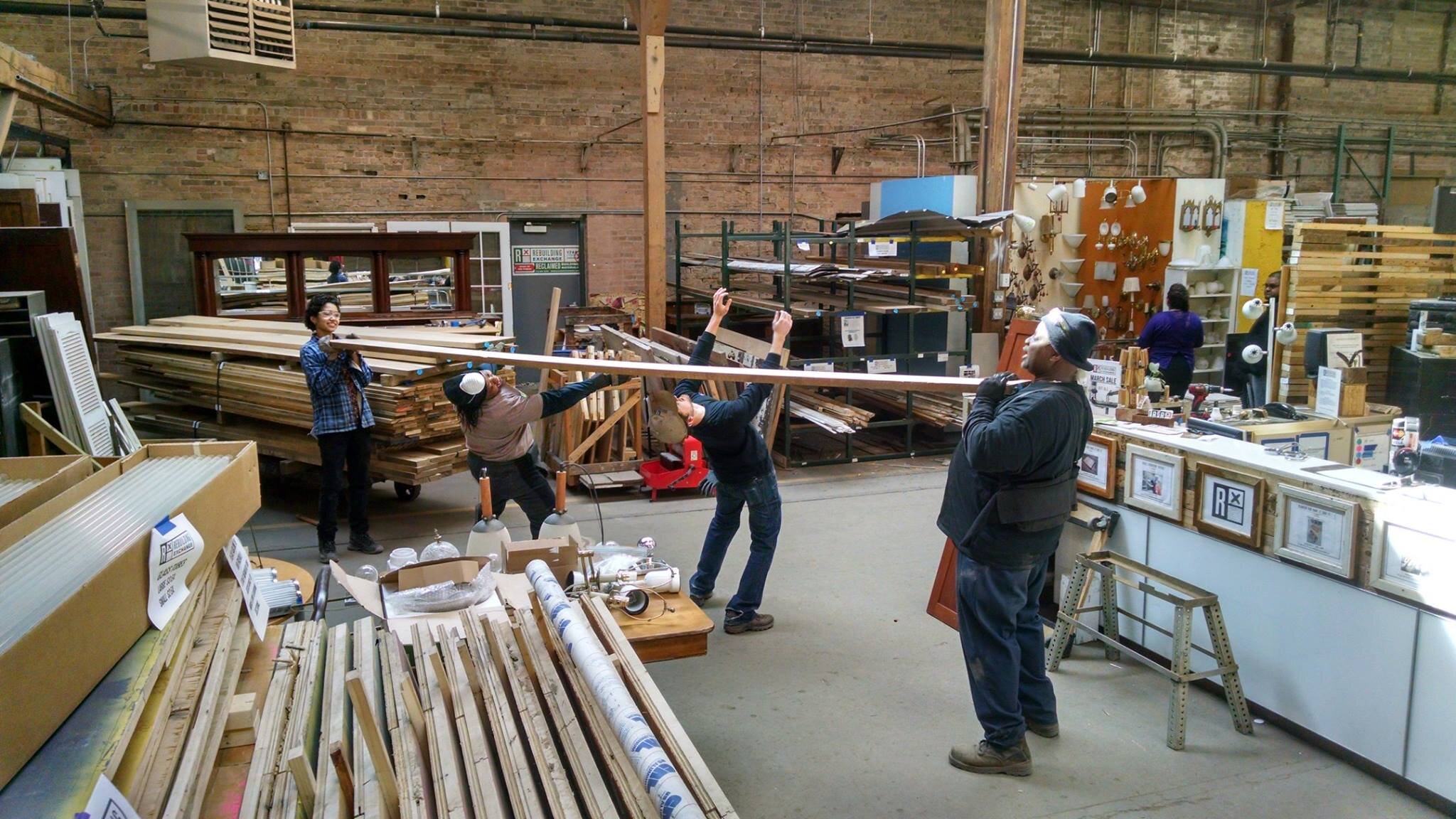
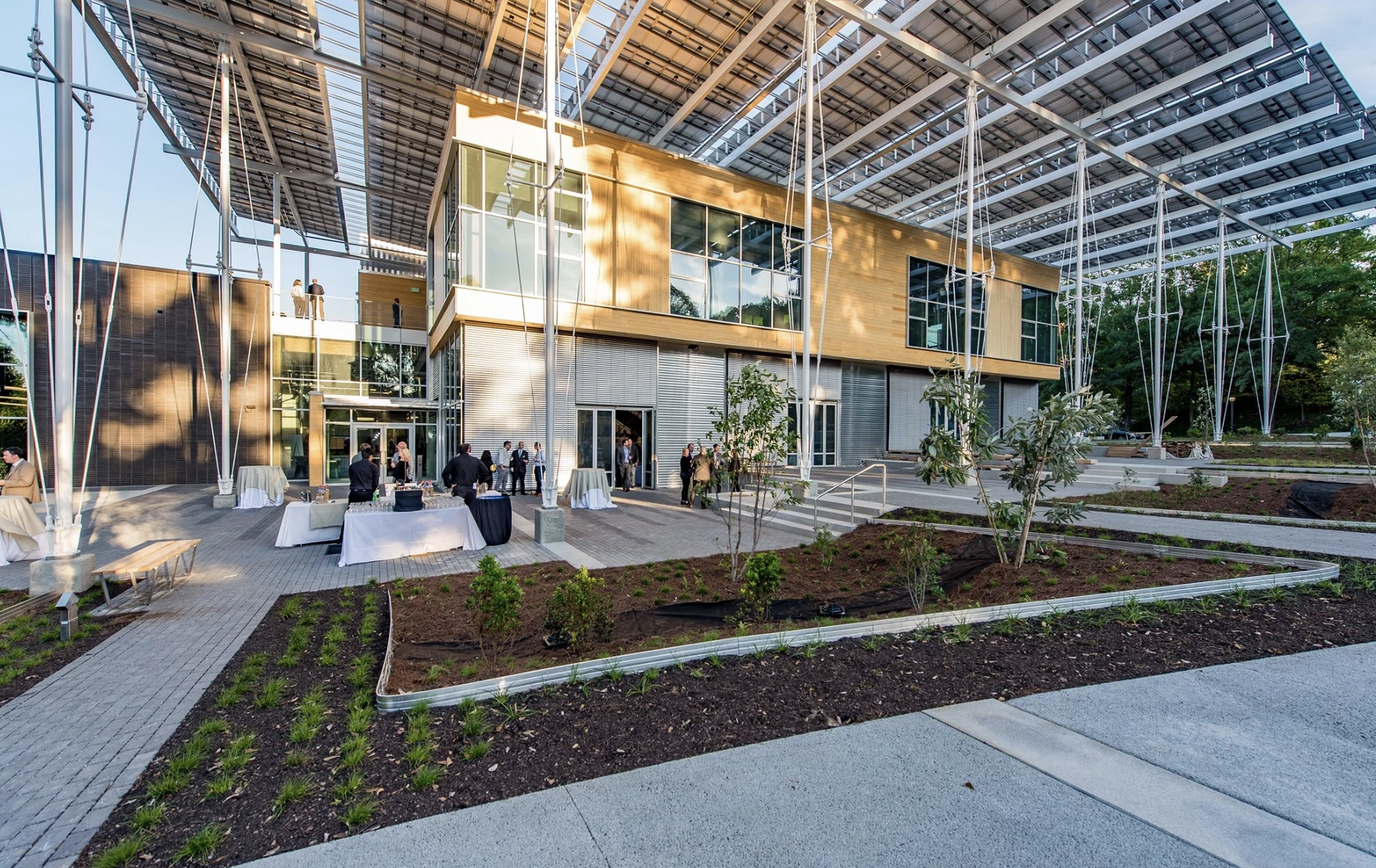
Thursday, October 20
11:00AM - 5:00PM ET
All times are listed in Eastern.
11:00 - 11:45 AM: Concurrent Session Presentations
Session 7.1: Community Forklift Reuse Center Tour
Katy Kutzner, Martina Ivanova (Community Forklift - Metro Washington, DC, USA)
Join Community Forklift for a virtual tour of its 40,000 square foot warehouse! The materials Community Forklift collects are either donated back to the residents in need through their Home Essentials or Community Building Blocks programs, or priced at low cost for their customers to purchase in their warehouse. Participants will be able to see and learn about areas of the organization through the tour and can ask questions at any time.
Session 7.2: Students in the CR0WD
Penny Crispin, Annie Stewart, Wyeth Augustine-Marceil, Melody Chen, Yu Wang (Cornell University - Ithaca, New York, USA)
The CR0WD (Circularity, Reuse and Zero Waste Development) Network has leveraged its proximity to Cornell University to engage dozens of students from diverse fields, interests and backgrounds to conduct research, lead interviews, analyze data, and produce visual media - all to contribute toward the goal of a more sustainable built environment. Students will outline the work they do to support CR0WD, and how this work aligns with their own educational and professional goals, and how a wide range of expertise can support other reuse organizations.
Session 7.3: Applied Research Focused on Sustainability, Circular Economy, and Lifecycle Thinking
Victor Krause (University of Minnesota - Duluth, USA)
As part of the University of Minnesota system research enterprise, the Natural Resources Research Institute (NRRI) employs more than 140 scientists, engineers, technicians, staff, and students in two industrial research facilities. Learn how NRRI’s collaborative partnerships and integrated research approaches have delivered innovative solutions to utilize and sustain Minnesota’s natural resources, including a recent partnership with Becker County Environmental Services Department, in Detroit Lakes, MN, that aims to establish material diversion processes at the transfer station level.
Session 7.4: Government Grants - Why and How?
Aina Gutierrez (ReBuilding Exchange - Chicago, Illinois, USA)
This session will share an example of how state government funding was a catalyst for programmatic growth for a reuse retail nonprofit, outline how grantees can be successful in securing grants and managing them, and discuss why despite the pain, it's important to apply if and when the opportunity arises for your own organization.
11:45 - 12:00 PM: Break
12:00 - 12:45: Concurrent Session Presentations
Session 8.1: Repurposing: A New Frontier in Landfill Diversion
Damon Carson (repurposedMATERIALS - Denver, Chicago, Atlanta, Dallas, and Philadelphia, USA)
There are a number of used and surplus materials coming from Corporate America that may have value that you might be overlooking. The key is finding a second, unrelated industry where the materials have value. Join us for a thought provoking session that will open your mind to new value-creating ideas with obsolete materials.
Session 8.2: Indicators for reuse potential assessment, current state, barriers, and opportunities within available data
Maria Sivers (PhD, EPFL)
Circular economy and reuse as a significant part of it have a substantial potential for slowing the CO2 emissions increase. A prerequisite of reuse efficiency is information about the reusability of components and structures that allows to evaluate and predict buildings' current and future reuse potential. Through the session, participants will learn about the reuse potential evaluation metrics. The presentation focuses on analyzing the existing reusability estimation tools in the construction sector, defining their characteristics, and verifying which data are used for their establishment.
Session 8.3: C&D Ordinance Planning Across Michigan
Claire Dion (City of Ferndale, Michigan, USA)
This panel session will focus on introducing construction & demolition requirements, including deconstruction, to a municipality that did not formally regulate C&D waste. No municipality in Michigan currently hosts a deconstruction ordinance, and Ferndale – a Detroit suburb – is working towards passing a multiple-stage ordinance and leading the region by example. We wish to share the research and partnerships that contribute to creating a feasible ordinance.
Session 8.4: Documenting Appraised Donations
Alex Nicholaides and Nicole Tai
12:45 - 1:30 PM: Break
1:30 - 3:00 PM: Deeper Dive Sessions
Our Deeper Dive Sessions form small groups to generate action-oriented ideas on topics of importance. The workshop-style sessions are followed by a collective report out to share knowledge and galvanize action beyond the conference. We’ve selected the following timely areas that our membership has identified as priorities heading into 2023.
Session 1: Rethinking the Transfer Station
Session Moderator: Kinley Deller (King County, Washington, USA)
Session 2: Embodied Carbon
Session Moderator: Daniel Kietzer (Rheaply)
Session 3: Brainstorming Session- National Building Materials Reuse Campaign
Session Facilitator: Nathan Proctor
A facilitated interactive session to generate ideas for the content and strategy of a potential national building material reuse campaign. (60-90 minutes)
3:00-3:30 PM: To Be Announced!
3:30 - 3:45pm: Break
3:45 - 4:45pm: Closing Keynote
From Excess to Access: Reuse as a Tool for Justice
Jackie Kirouac-Fram (ReBuilding Center - Portland, Oregon, USA)
Reuse and repair are so much more than climate-friendly acts - they are also tools to build racial equity and economic resilience in your community. This session will show how ReBuilding Center, a building materials reuse nonprofit in Portland, Oregon, has transformed its operations, programming, hiring, communications, and fundraising to better serve people who are most at risk of displacement and housing insecurity in a rapidly gentrifying city, and how you can adopt some of these tactics to build resilience through reuse in your community.
4:45 - 5:00 PM: Conference Wrap Up
Closing remarks, awards, and thank yous from Build Reuse.
